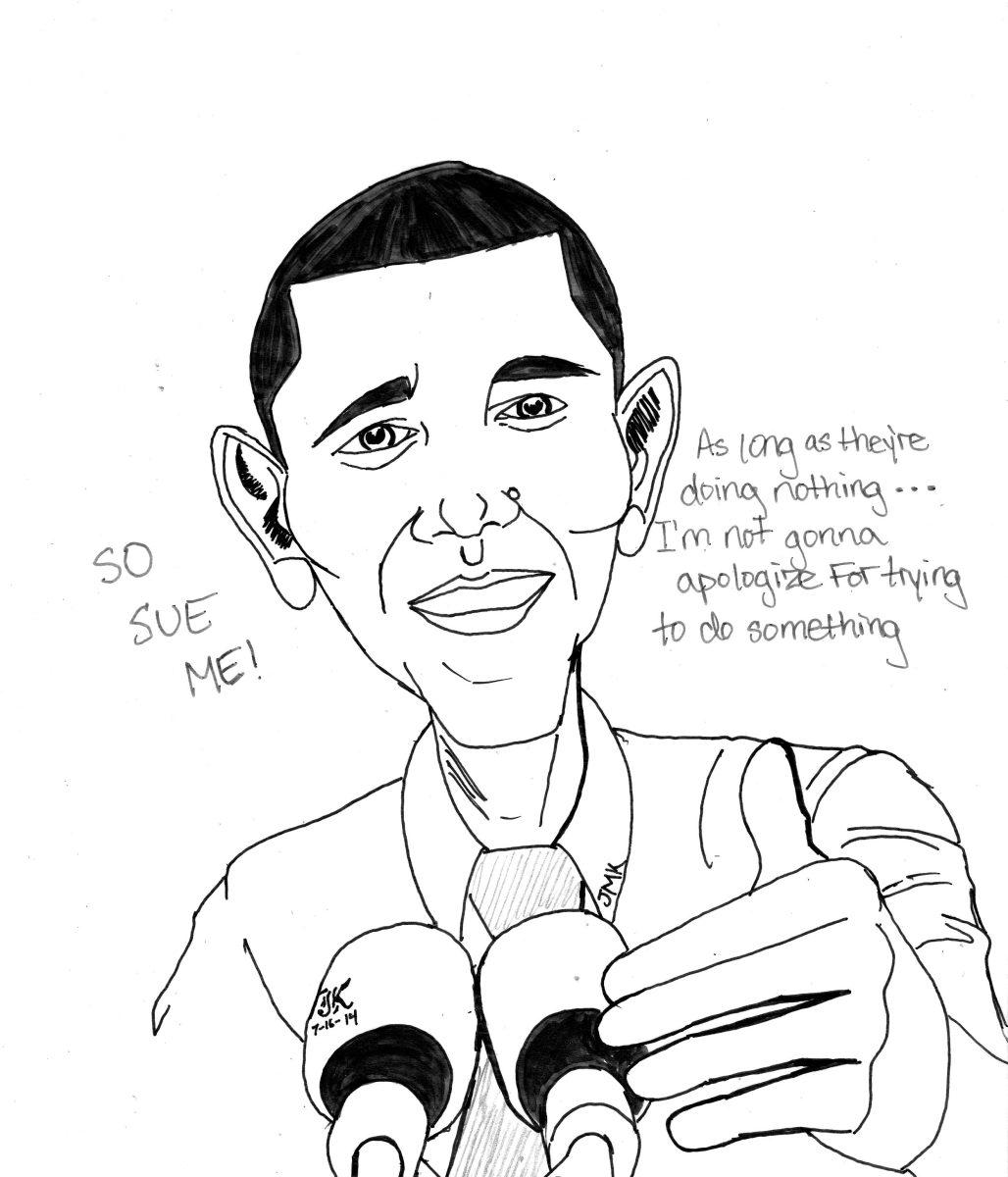Last month, House Speaker John Boehner announced his intention to seek legislation allowing the House to launch a lawsuit against President Barack Obama about his excessive use of executive orders. According to The New York Times, Boehner’s lawsuit will challenge the president’s decision to delay imposing penalties on employers who do not offer health insurance to employees to comply with the Affordable Care Act.
“The Constitution makes it clear that a president’s job is to faithfully execute the laws; in my view, the president has not faithfully executed the laws,” Boehner said in a letter to the representatives.
But some Democrats see Boehner’s move as one of the many partisan efforts to stop the president from presiding over his duty.
“This lawsuit is just another distraction from House Republicans desperate to distract the American people from their own spectacular obstruction and dysfunction,” said House Minority Leader Nancy Pelosi.
Despite criticism from Democrats, the speaker’s legal action against the president is not based on partisan or political motives. First, the lawsuit will specifically challenge the fact that Obama changed the healthcare law without a vote of Congress, waiving the employer mandate and the penalties for failing to comply it. Boehner’s lawsuit is meant to protect the law’s integrity simply by asking the president to stop making changes to the law unless Congress votes on it.
Second, Boehner rejects the Republicans’ idea of impeaching the president. Former GOP vice presidential candidate Sarah Palin has joined a growing chorus of Republicans calling for the impeachment of Obama. They think Boehner has not gone far enough to fight with the president. But the House Speaker disagrees with them, showing that there is little motive to attack the president in a political way.
In Article II, Section 4 of the U.S. Constitution, the president shall be impeached due to “conviction of treason, bribery, or other high crimes and misdemeanors.” What Boehner intends is not to challenge the president’s right to issue executive orders, only his action to change the legislation. In addition, the Constitution solely gives power to the Senate to implement an impeachment.
Thanks to the three-branch political framework, the disagreement can be settled by asking the judiciary branch to have a final decision regarding the constitutionality of the president’s actions. This due process is the core value of the rule of law, regardless of who wins the case. Some political commentators defend Obama’s excessive use of executive orders by citing that President George W. Bush also used many executive orders during an era of crises. But issuing executive orders to enforce the law is very different from using them to change the law.
This explicit conflict between the president and the speaker is just the tip of the iceberg. The executive branch has created hundreds of federal agencies to specify details of laws and how they enforce it, which is equivalent to creating their own laws. During the 1960s and ‘70s, the creation of massive federal agencies that engage in business regulation, environmental protection, food inspection and so on, reflects Congress’ shaking off its obligation to clarify the laws it makes, leaving the executive branch too much room to maneuver the laws. This lawsuit arose because Obama is desperate to achieve what he wants the Congress to progress, but it fails many times.
A lawsuit initiated against the president is rare but inevitable under this circumstance. For one thing, the president should execute the Constitution and the laws faithfully, realizing that Congress is the only institution to make laws. If Congress does not act for whatever reason, the president could do anything to urge lawmakers except get around the Congress to make his own laws. For another, Congress should not flee from its obligation of clarifying and specifying laws that seem to be ambiguous, the duty of facilitating the executive branch to enforce the laws.








